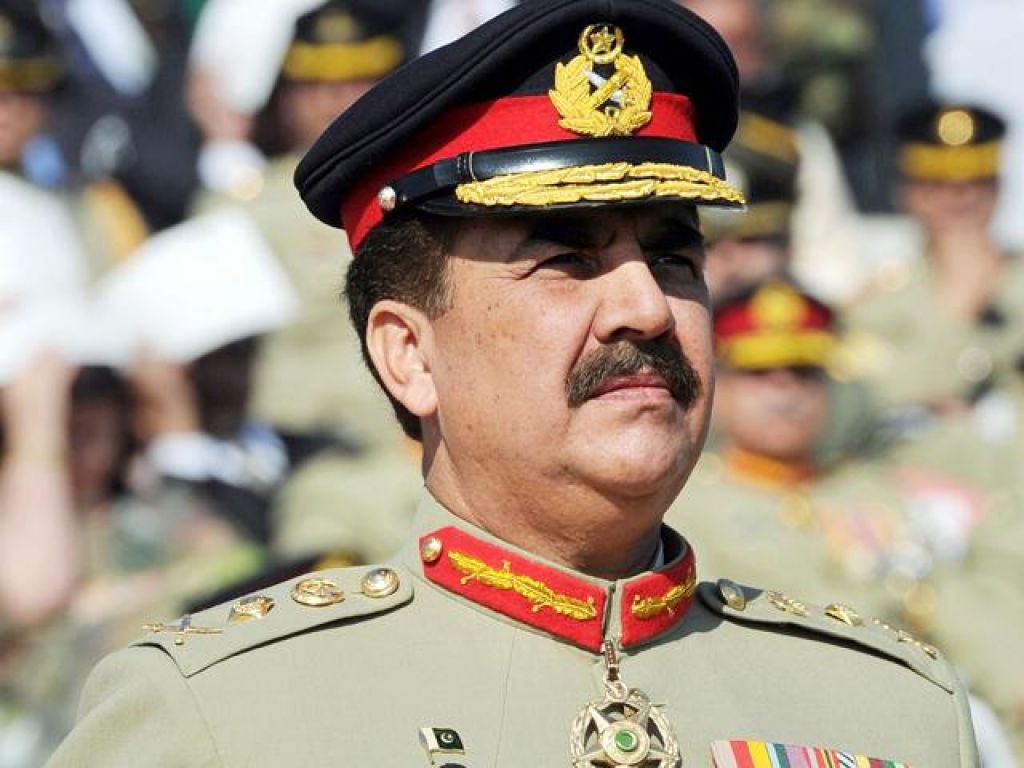Raheel Sharif To Lead Saud Military Alliance

NEW DELHI: Pakistan’s former military chief General Raheel Sharif has been appointed as the first commander of a Saudi-led military alliance to combat terrorism. Dubbed the “Muslim Nato” the Islamic Military Alliance to Fight Terrorism (IMAFT) is comprised of 39 mostly Sunni countries and headquartered at Riyadh.
The alliance was first proposed in 2015 to fight the Islamic State, and created its share of controversy in Pakistan as the country was divided over Islamabad’s role in the alliance. The indecisiveness, culminating in Pakistan deciding not to send troops to aid Saudi operations in Yemen, strained relations between the two countries, with Prime Minister Nawaz Sharif’s government following suit with repeated assurances that “the people of Pakistan held the Kingdom of Saudi Arabia in high esteem and also had deep respect for the Custodian of the Two Holy Mosques. … (they) will always stand shoulder to shoulder with the people of Saudi Arabia against any threat to its territorial integrity and sovereignty.”
In regard to the coalition specifically, Pakistan had to walk a tightrope between its relationship with Saudi Arabia and the costs of military involvement in the Kingdom’s many wars. After the coalition was announced, Pakistan initially denied involvement, going as far as to say that Pakistan had never been consulted on the decision. Officials changed their stance a day later, confirming the country’s inclusion, in what has become a characteristic vacillation given Pakistan’s stance with Saudi Arabia.
With Sharif’s appointment, the confusion arising out of the above has been put to rest. At the same time, the General’s decision to take up the offer has been widely criticised. For instance, the Majlis Wahdat-e-Muslimeen, a Shia political group, criticised the appointment and asked Sharif to turn it down.
Defence analyst Talat Masood told the DPA news agency the decision could result in a fallout for Pakistan. "… the other fact is that a Pakistani general will head this coalition that is controversial and Iran is very much opposed to it," Masood underlined. "There are question marks whether it is a wise decision that a Pakistani will head an organization that is controversial and would take actions against certain forces which are backed by certain other Muslim countries," Masood added.
The Guardian quotes Hasan Askari Rizvi, a Pakistani defence analyst, raising questions regarding the nature of IMAFT, and whether the body will function as a “non partisan force.” “But there is a question of how far this force would be a non-partisan force,” he said. “At the moment it appears to be dominated by conservative Arab kingdoms so Iran, Iraq and Syria will not welcome it.”
DW quotes Mosharraf Zaidi, a former USAID consultant and Islamabad-based foreign policy expert saying that "Pakistan should not get involved in the Saudi Arabia-Iran regional rivalry.” "We must not forget that Riyadh and Tehran have their own interests, therefore the Pakistani government, too, should do what is best for the country. It must keep good relations with both Saudi Arabia and Iran.”
Iran, notably, is absent from the coalition. Pakistan has had to walk the tightrope between Saudi Arabia and Iran on a host of matters in recent years. In addition to being allied in terms of Sunni sectarian identity, Pakistan continues to receive much-needed financial assistance from Riyadh. In 2015, for instance, Pakistan reportedly received $1.5 billion in aid from Saudi Arabia to meet debt obligations and bolster its foreign exchange reserves. History, too, is indication of Pakistan’s commitment to Saudi Arabia. In 1990, Pakistan agreed to join an international coalition in defence of Saudi Arabia against Iraqi aggression.
At the same time, Pakistan has to be careful of its own relations with Iran -- with whom it shares a border -- and it has to be mindful of not overextending the Pakistani army, that is already embroiled in a military offensive within the country’s own borders.
And while Islamabad was attempting to manoeuvre the tightrope between Saudi Arabia and Iran, Gen. Shareef’s appointment indicates that it is now firmly on the Saudi side. The move will inevitably create more friction in already tense Iranian-Pakistani ties, as well as potentially anger Pakistan's pro-Iran Shiite minority and fuel sectarian tensions in the already volatile country.



